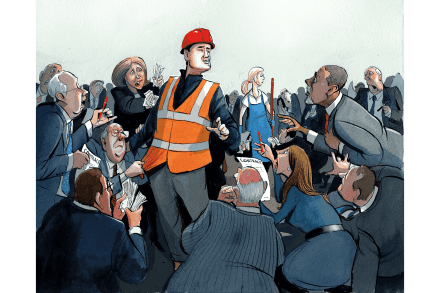The civil service’s exercise in navel-gazing
Are you happy in your work? In 37 years of journalism I don’t remember once being asked that question by my bosses. Nor did I expect to be. But in the civil service there is a bureaucratic machine to make sure employees are asked once a year if everything is all right, dearie. At unpublicised cost, the People Survey invites penpushers to complain. Guess what – they do. Three mandarins explained this time-consuming exercise to the Commons public administration select committee. They were: Alex Chisholm, the civil service’s chief operating officer; Fiona Ryland, ‘government chief people officer’; Dr Claudia Roscini, head of the civil service People Survey team. The survey




















